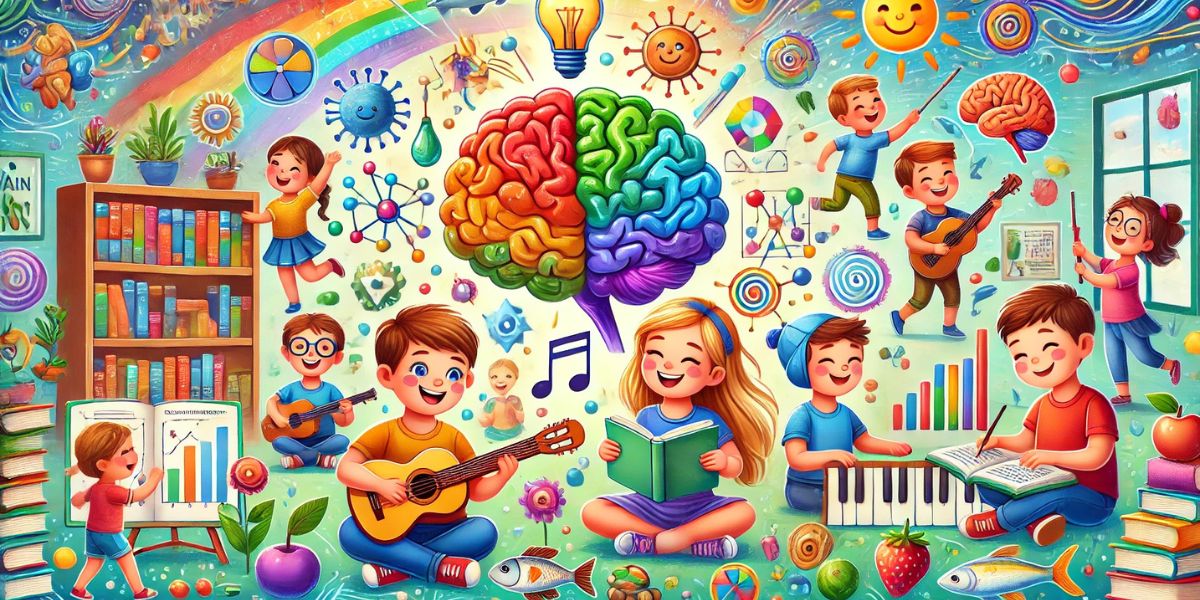
As children grow up and start attending school, they are exposed to learning and grasping new concepts. To stay attentive and energetic in school, children need to consume nutrient rich foods that help in brain development.
Table of Contents:
In this blog, let’s understand the concept of brain development in children and explore a few tips that can support their brain development.
From being in the womb to toddler stage to adolescence, the brain development doesn’t stop. Several studies say that major of the brain forms before the age of five and keeps developing rest of the age.
During all these years the brain is forming connections that will help the child to perform high level tasks later in life. Experience also impacts a child’s brain development. Early experiences, such as learning and social interactions, along with proper nutrition, significantly impact cognitive abilities.
Omega-3 fatty acids are commonly found in fatty fishes like salmon and tuna, flax seeds and walnuts. They help in thought processing, boosts learning capacity and memory. This also supports brain cell structure, function, and enhances memory and cognitive abilities.
Antioxidants prevent oxidative stress and improve cognitive function of the brain. Fruits and vegetables especially berries and leafy vegetables are rich in antioxidants and are linked to improved memory and brain health.
Vitamin B12, Folic acid, iodine, iron and choline play a crucial role in brain function. They help in supporting memory, nerve signaling, and mental performance.
1. Berries: Berries are a good memory sharp food with the presence of antioxidants in it. They improve memory and protect brain health. They can be mixed in smoothies and yoghurt bowls to serve to kids.
2. Fatty Fish: Fatty fishes are rich in omega 3 fatty acids. To serve to children, they can be grilled, or cooked.
3. Nuts and Seeds: They provide essential nutrients and healthy fats supporting brain health. You can include them in snacks or meals.
4. Whole Grains: Whole grains boost energy levels of the brain by providing a steady supply of glucose and fiber. Foods like oats, brown rice, and whole grain bread are good examples mind sharp foods.
Physical Activity: Regular exercises increase blood flow and oxygen to the brain promoting memory retention.
Quality Sleep: Sleep for 8 to 10 hours every day is vital to maintain cognitive health, memory retention, and overall brain function.
Limiting Screen Time: Technology can be appealing to use but it must be limited to avoid overstimulation and losing focus and concentration.
Kids need an active, focused and sharp brain. Their daily tasks include learning complex concepts and solving them. To do these activities, they need a diet and a lifestyle that supports their brain activities.
Healthy eating habits, regular exercises and stimulating activities supports and helps in the developing a sharp brain. Along with a balanced diet, parents can introduce Complan, a nutritious drink in their daily routine.
Amongst the 34 vital nutrients that Complan contains, there are nutrients like iron, iodine Folic acid, Zinc, Choline and vitamin B12 to support memory and concentration
1. How can I help support my child’s memory and concentration?
Incorporate memory sharp food like berries, fatty fish, and nuts into their diet and encourage regular physical activity and quality sleep. Including Complan nutritious drink can also help.
2. What role does hydration play in brain development for kids?
Staying hydrated is essential for maintaining cognitive functions and concentration.
3. How much physical activity should children get to support brain development?
Children should do at least 30 minutes of moderate physical activity daily. It increases blood flow and oxygen to the brain.
4. What are some brain exercises or activities that can help sharpen a child’s mind?
Activities like reading, solving puzzles, playing memory games, and engaging in music or art can help stimulate cognitive abilities and improve brain.
5. Does screen time affect brain development in children?
Excessive screen time can negatively impact brain health by causing overstimulation and reducing focus. Limiting screen time and encouraging other activities can help maintain brain development.
Source:
https://www.zerotothree.org/resource/understanding-brain-development-in-babies-and-toddlers/
0%
You have clicked on a link which leaves Zydus wellness's website, and you will be redirected to a third party website. Zydus Wellness makes no representations nor has any supervision or control over the quality, content, reliability or security of the third party website, nor shall Zydus / its affiliate be responsible / liable for its use.